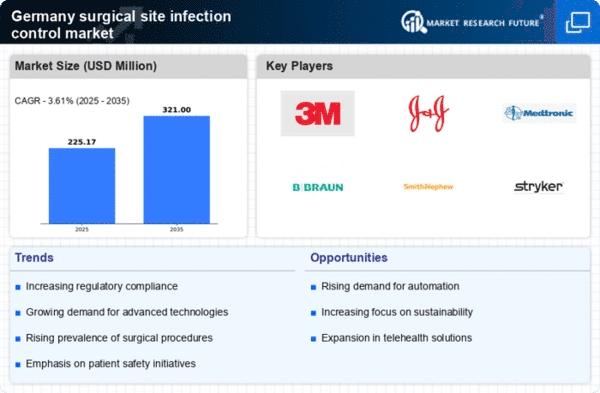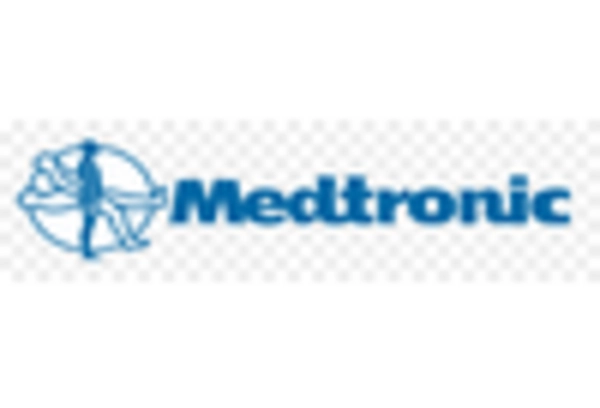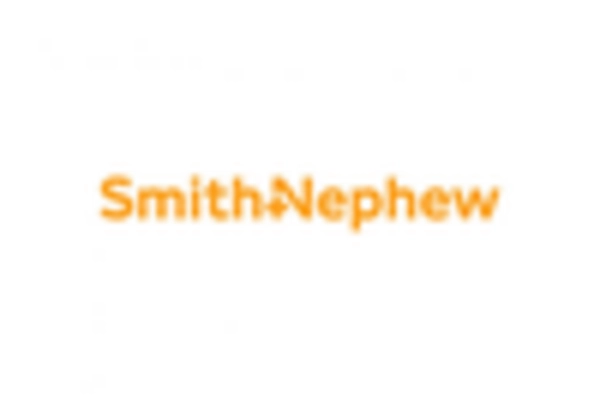Regulatory Initiatives and Standards
Regulatory bodies in Germany are implementing stringent guidelines and standards aimed at reducing surgical site infections. These regulations compel healthcare facilities to adopt comprehensive infection control protocols, thereby driving the surgical site-infection-control market. Compliance with these regulations is essential for hospitals to maintain accreditation and ensure patient safety. As a result, there is a growing demand for products and services that meet these regulatory standards. The surgical site-infection-control market is likely to benefit from this trend, as healthcare providers invest in compliant solutions to avoid penalties and enhance their reputation.
Rising Incidence of Surgical Procedures
The increasing number of surgical procedures in Germany is a primary driver for the surgical site-infection-control market. As the population ages and the prevalence of chronic diseases rises, the demand for surgical interventions escalates. In 2025, it is estimated that over 20 million surgical procedures will be performed annually in Germany, leading to a heightened focus on infection control measures. This trend necessitates the adoption of advanced surgical site-infection-control products and protocols to mitigate the risk of postoperative infections. Hospitals and surgical centers are investing in innovative technologies and practices to enhance patient safety, thereby propelling the growth of the surgical site-infection-control market.
Growing Awareness of Infection Prevention
There is a notable increase in awareness regarding the importance of infection prevention in surgical settings among healthcare professionals and patients in Germany. This heightened awareness is driving the surgical site-infection-control market as stakeholders recognize the critical role of effective infection control measures in improving surgical outcomes. Educational campaigns and training programs are being implemented to inform medical staff about best practices in infection prevention. As a result, hospitals are more likely to invest in advanced surgical site-infection-control solutions, which could lead to a projected market growth of approximately 8% annually over the next five years.
Technological Innovations in Infection Control
Technological advancements in infection control products are significantly influencing the surgical site-infection-control market. Innovations such as antimicrobial sutures, advanced sterilization techniques, and smart monitoring systems are being developed to enhance surgical safety. In Germany, the adoption of these technologies is expected to increase as healthcare facilities strive to reduce infection rates. The market for surgical site-infection-control products is projected to reach €1 billion by 2027, driven by the demand for more effective and efficient infection control solutions. These innovations not only improve patient outcomes but also align with the growing regulatory requirements for infection prevention.
Increased Investment in Healthcare Infrastructure
The German government is making substantial investments in healthcare infrastructure, which is positively impacting the surgical site-infection-control market. Enhanced funding for hospitals and surgical centers allows for the procurement of advanced infection control technologies and training programs. This investment is crucial for improving surgical outcomes and reducing infection rates. As healthcare facilities upgrade their infrastructure, the demand for effective surgical site-infection-control solutions is expected to rise. The market could see a growth rate of around 7% annually, driven by these investments and the ongoing commitment to improving patient care.
















